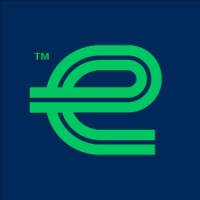
شركة محطات العالم المحدودة
تقدم شركة محطات العالم الخدمات التالية : الخدمات الارضية المقدمة للمعتمرين خدمات حجوزات الفنادق خدمات توفير المواصلات استخراج التأشيرات



تقدم شركة محطات العالم الخدمات التالية : الخدمات الارضية المقدمة للمعتمرين خدمات حجوزات الفنادق خدمات توفير المواصلات استخراج التأشيرات

At Enterprise Mobility™ we are paving a new way forward by creating better experiences for how we move. We give people around the world the ability to connect in ways that suit their unique needs. It’s a bold idea that has defined our purpose-led, people-first organization for over 65 years, and it’s one that we continue to strive toward with every journey. Through our trusted brands and our portfolio of offerings, we aim to reach the highest levels of customer service with each interaction. And we invest in — and care about — each other, our communities and every journey. It’s a point of pride and distinction, rooted in our origins. It’s how we grew from a pioneer with a fleet of seven cars to a global mobility leader with more than 90,000 team members around the world. And it’s what will continue to drive the future of the organization and mobility itself. Over the years, we’ve learned moving forward isn’t a simple matter of going from point A to B. Today, mobility is the movement of people and goods. It goes beyond the vehicles we drive to encompass an integrated way of travel that meets every individual’s unique needs and preferences. That is why it’s our vision to be the world’s best and most trusted mobility company. As mobility continues to evolve, we'll continue to innovate to work toward a reimagined mobility future that is more accessible, efficient and sustainable for all.
Security & Compliance Standards Overview












No incidents recorded for شركة محطات العالم المحدودة in 2025.
No incidents recorded for Enterprise Mobility in 2025.
شركة محطات العالم المحدودة cyber incidents detection timeline including parent company and subsidiaries
Enterprise Mobility cyber incidents detection timeline including parent company and subsidiaries
Last 3 Security & Risk Events by Company
Angular is a development platform for building mobile and desktop web applications using TypeScript/JavaScript and other languages. Prior to versions 19.2.16, 20.3.14, and 21.0.1, there is a XSRF token leakage via protocol-relative URLs in angular HTTP clients. The vulnerability is a Credential Leak by App Logic that leads to the unauthorized disclosure of the Cross-Site Request Forgery (XSRF) token to an attacker-controlled domain. Angular's HttpClient has a built-in XSRF protection mechanism that works by checking if a request URL starts with a protocol (http:// or https://) to determine if it is cross-origin. If the URL starts with protocol-relative URL (//), it is incorrectly treated as a same-origin request, and the XSRF token is automatically added to the X-XSRF-TOKEN header. This issue has been patched in versions 19.2.16, 20.3.14, and 21.0.1. A workaround for this issue involves avoiding using protocol-relative URLs (URLs starting with //) in HttpClient requests. All backend communication URLs should be hardcoded as relative paths (starting with a single /) or fully qualified, trusted absolute URLs.
Forge (also called `node-forge`) is a native implementation of Transport Layer Security in JavaScript. An Uncontrolled Recursion vulnerability in node-forge versions 1.3.1 and below enables remote, unauthenticated attackers to craft deep ASN.1 structures that trigger unbounded recursive parsing. This leads to a Denial-of-Service (DoS) via stack exhaustion when parsing untrusted DER inputs. This issue has been patched in version 1.3.2.
Forge (also called `node-forge`) is a native implementation of Transport Layer Security in JavaScript. An Integer Overflow vulnerability in node-forge versions 1.3.1 and below enables remote, unauthenticated attackers to craft ASN.1 structures containing OIDs with oversized arcs. These arcs may be decoded as smaller, trusted OIDs due to 32-bit bitwise truncation, enabling the bypass of downstream OID-based security decisions. This issue has been patched in version 1.3.2.
Suricata is a network IDS, IPS and NSM engine developed by the OISF (Open Information Security Foundation) and the Suricata community. Prior to versions 7.0.13 and 8.0.2, working with large buffers in Lua scripts can lead to a stack overflow. Users of Lua rules and output scripts may be affected when working with large buffers. This includes a rule passing a large buffer to a Lua script. This issue has been patched in versions 7.0.13 and 8.0.2. A workaround for this issue involves disabling Lua rules and output scripts, or making sure limits, such as stream.depth.reassembly and HTTP response body limits (response-body-limit), are set to less than half the stack size.
Suricata is a network IDS, IPS and NSM engine developed by the OISF (Open Information Security Foundation) and the Suricata community. In versions from 8.0.0 to before 8.0.2, a NULL dereference can occur when the entropy keyword is used in conjunction with base64_data. This issue has been patched in version 8.0.2. A workaround involves disabling rules that use entropy in conjunction with base64_data.